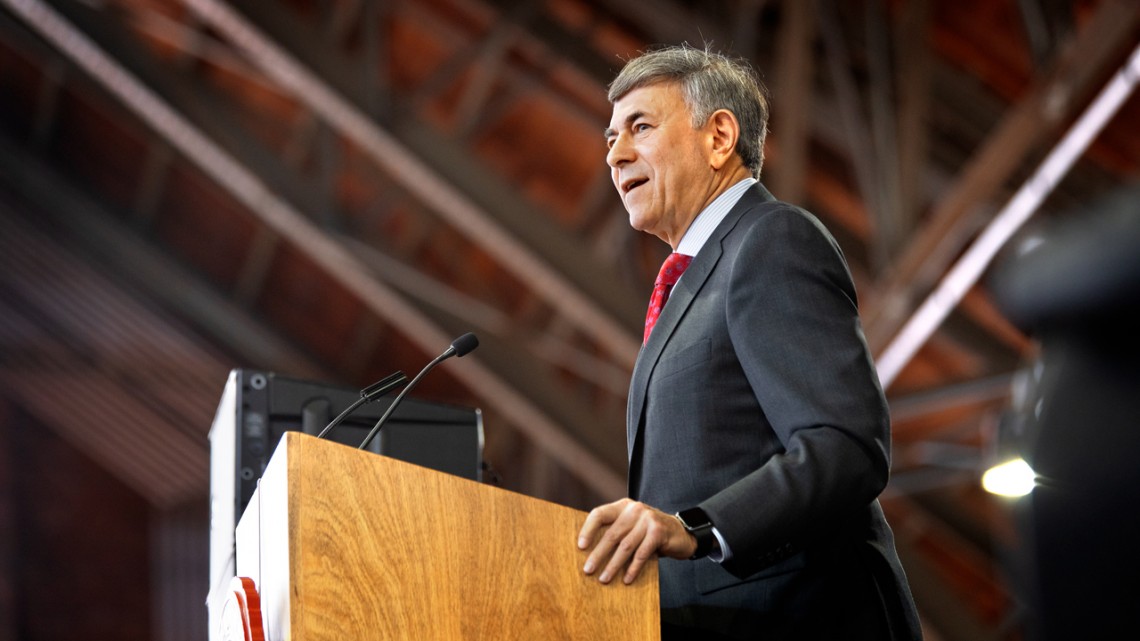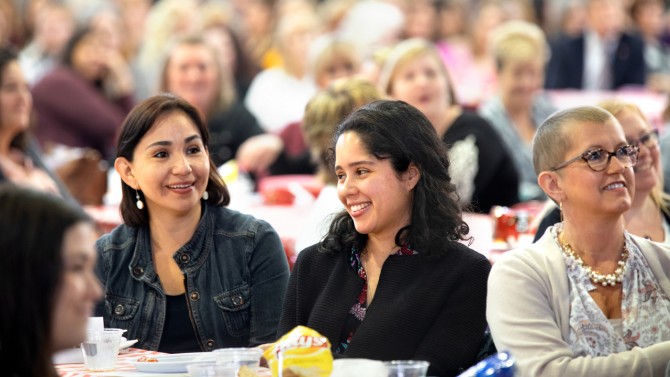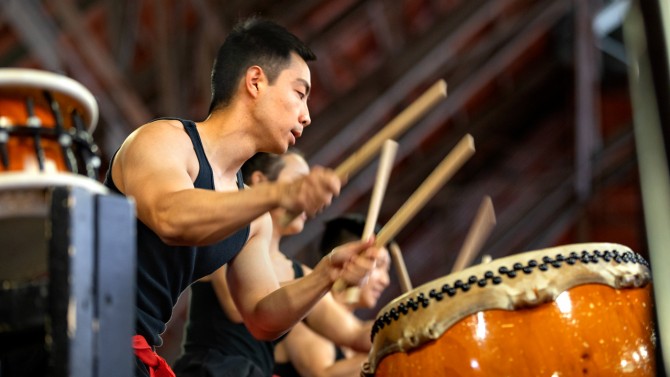
Robert S. Harrison ’76, chairman of the Cornell University Board of Trustees, speaks at the 31st annual Jennie T. Farley Office Professionals Celebration.
Key role of office professionals celebrated at lunch
By Nancy Doolittle
The 31st annual Jennie T. Farley Office Professionals Celebration, held April 24 in Barton Hall, focused on the central role employees play in the life and mission of the university. The event featured remarks by Robert S. Harrison ’76, chairman of the Cornell University Board of Trustees, and Mary Opperman, vice president and chief human resources officer.
That role was underscored by Opperman’s announcement that, in consultation with the Employee Assembly, the trustees have created a special award to formally express their appreciation of Cornell’s employees. That award will be given annually to a standout employee that Opperman and Harrison will choose from nominees across all categories of the annual President’s Awards for Employee Excellence.
“Today’s administrative and office professionals hold a number of job titles,” Opperman said, addressing an audience of nearly 700. Within those job titles, their roles include “serving as critical partners, thinking ahead about strategic issues, juggling multiple complex tasks, and supporting our students, faculty, alumni, families and one another,” she said.
Thanking event participants for their optimism, resilience and collegiality, Opperman noted that office professionals are often the first point of contact for students and visitors, and set the tone for the offices in which they work. Through their planning for social events, recognition of staff milestones and assistance to others, office professionals make people feel welcome and directly promote a culture of belonging. “You are also entrusted with mission-critical issues that directly advance our amazing university,” she added.
Harrison opened his remarks by highlighting the Cornell staff with whom he has worked closely: Kathleen Snyder, special events manager for the president’s and provost’s offices, who has helped “create memorable and meaningful events for the trustees not only here in Ithaca, but also in New York City”; Opperman, whom he considers “one of the best employee leaders in the country,” who has “consistently and tirelessly” championed employee issues at the board of trustees level throughout Harrison’s time on the board; and Kristin MacHenry, associate secretary of the corporation, who works behind the scenes with trustees and is “the consummate professional,” organized, knowledgeable, proactive and “tremendous fun to work with.”
Harrison also spoke of “the one distinguishing Cornell feature” that sets the university apart from its peer institutions: the presence of an employee-elected trustee – and the other community-elected trustees who represent faculty and students – on its board. He noted that those roles – and the self-governance system of the assemblies – had their genesis in the Willard Straight Hall occupation of 50 years ago. Harrison recalled how he and George Peter, the late electronics technician who helped install Cornell’s Arecibo telescope in Puerto Rico, became good friends when they both were involved in forming the first campus governance organization, the University Senate, which emerged following the Straight occupation and was a predecessor of the current self-governance system.
“George was outspoken, universally respected and the obvious choice to become the first-ever employee-elected trustee on the board of trustees in 1975,” Harrison said. Calling Peter “a legendary Cornell employee who was very active during his entire career in advocating for increased employee participation in campus governance,” Harrison said Peter believed that “everyone in the Cornell community is a part of our overriding mission, including its employees.”
Harrison noted this central role of employees recently was in evidence when the trustees met with New York Gov. Andrew Cuomo and other state leaders, who spoke of the benefits they have experienced from Cornell’s involvement in “solving really big, real-world problems,” both through its extension work and in projects such as the approach to repairing a subway tunnel in New York City.
“Cornell has a history of community involvement and impact,” Harrison said. “We engage our students, our faculty and our employees every single day in this important work, and I honestly believe that this teamwork is why we are at the leading edge of making a difference.”
The celebration’s organizers – Marilyn Willkens, Kathleen Snyder, Traci Morse and Sandra Redfield – emcee’d the event and gave away dozens of door prizes. Providing entertainment were student groups Amber Dance Troup, Yamatai, Cornell Lion Dance and On Tap Dance Troupe.
Media Contact
Get Cornell news delivered right to your inbox.
Subscribe


